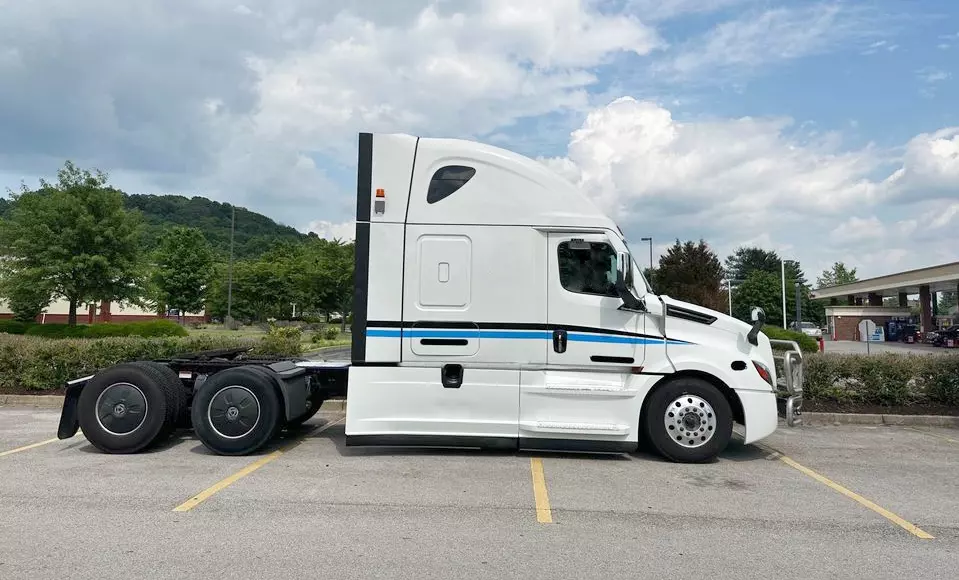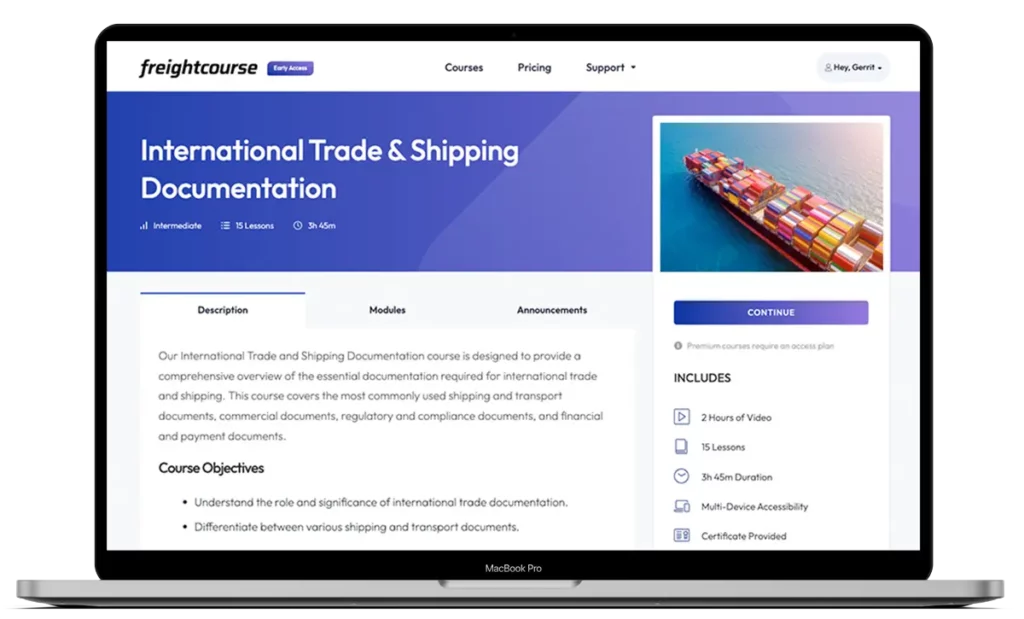Trucking companies offer a wide variety of services to clients, including less-than-truckload, full-truckload, refrigerated trucking, and intermodal freight shipping, to name a few. In the ever-changing supply chain, companies must be more flexible and adaptable to unlock multiple income streams.
One way to do that is by offering “Power Only” services. “Power Only” is a transportation service where a trucking company provides a customer with a semi-tractor and driver, without a trailer. In other words, they offer the means to move a shipper’s or receiver’s load by coupling their tractor units to the shipper’s owned or leased trailers and transporting them to their final destination.
By just utilizing power units (semi-trucks and drivers), shippers gain access to more operational flexibility whereas truckers reduce their expenditure by eliminating the need to procure and maintain trailers. It also allows them the flexibility to work with more trucking companies simultaneously, as they don’t need to match trailers.
In this article, we’ll explain how “Power Only” services work and share their advantages and disadvantages in the trucking industry. We’ll also talk about the common trailer types shippers own or lease for this arrangement, reasons why shippers opt for this service, and provide complementary strategies to “Power Only” services.
How Does It Work?
Shippers can procure “Power Only” trucking services by contacting carrier companies offering them. Carriers will then provide the number of semi-trucks and drivers requested by the shipper to the pickup facility. Below is an overview of the typical process:
- The Shippers Contacts Trucking Company – A “Power Only” trucking service commences with a shipper contacting different carriers via phone, email, live chat, and other channels to inquire about their availability, resources, and other essentials.
- The Trucking Company Supplies Truck & Driver – Following the inquiry and agreement, the trucking company provides trucks without trailers since the shipper already has dedicated trailers ready for pickup at their facility.
- The Trailer Is Picked Up – The driver simply transports the semi-tractor unit to the pickup facility and couples the client’s loaded trailer for transportation.
- The Trailer is Transported to the Destination – The driver transports the trailer to the assigned destination, such as a warehouse, production plant, or factory.
- The Trailer is Dropped Off – “Power Only” services do not necessarily end at the receiver’s facility. In some cases, the driver must drop the empty trailer following unloading back at the pickup location, a new storage location, or near a loading bay.
- The Truck & Driver Return – Following the drop-off, the truck and driver can finally return to their home base and wait for the next assignment.
Why Opt For “Power Only”?
There are various reasons why shippers prefer Power Only services, compared to a full service. Below, you’ll find the main advantages explained in detail.

Scalability
“Power Only” services allow shippers to manage volume volatility. For instance, they can scale up or down operations during different periods, especially if they are required to move cargo on a project basis.
Similarly, trucking companies that offer such services can also maximize truck utilization without needing to invest in a large pool of trailers. In other words, they are not limited by their current equipment and can scale with more flexibility since shippers have their own leasing agreements or own their own trailers.
Cost Effectiveness
“Power Only” services allow shippers to eliminate the need to procure semi-trucks as they are outsourced. Such equipment typically requires upfront costs and in most cases, shippers would not be able to maximize their utilization by only hauling their own loads.
This would result in numerous trips accumulating deadhead miles. Therefore, it is typically more cost-effective to pay a trucking company to provide power units for each arrangement.
Furthermore, owning semi-trucks would incur recurring costs for shippers related to maintenance, repairs, and regulatory compliance. By outsourcing their transportation needs, shippers can focus their costs on core competencies instead.
Productivity
Managing both equipment and a team of drivers can be an extremely time-consuming task that typically requires a team. Opting for “Power Only” services allows shippers to shift their time and effort toward their core business practices.
Additionally, by leveraging multiple carriers, shippers can have access to multiple power units. With this transportation strategy, they can meet tight deadlines and have round-the-clock transportation.
Moreover, trucking companies are equipped with the latest route-planning technologies making them more effective in optimizing routes and schedules. In turn, this saves time and effort for both parties.
Geographic Coverage
Most carriers operate in specific locales, usually measured in a mile radius. By opting for “Power Only” services, shippers can outsource shipments to companies specializing in a particular route or location. This would enable shippers to move freight in different regions or branches without needing to have their own trucks move across vast distances.
Resource Management
Finally, shippers and carriers can reduce their administrative tasks by opting for “Power Only” services. For instance, trucking companies don’t have to deal with trailer registrations, insurance, inspections, repairs, maintenance, and security, among other management aspects. Similarly, shippers don’t have to deal with truck leasing, fleet management, and driver training.
Trailers Types That Are Commonly Used When Opting For “Power Only” Services
Shippers may own various types of semi-trailers to transport different cargo types from one location to another depending on their needs. Below are some of the most common trailers types that are used with Power Only services.
- Container Chassis – Container chassis, also called a skeletal trailer, is designed to hold and transport intermodal shipping containers. Its build features a skeletal frame made of steel equipped with tires, brakes, twist locks, and a lighting system.
- Flatbed Trailers – Flatbed trailers are open-deck trailers with no sides or roofs. They’re generally used to transport wide, tall, overweight, or irregularly shaped cargo, such as lumber, construction machinery, and similar.
- Dry Van Trailers – Dry van trailers are fully enclosed trailers designed to transport non-perishable items and general cargo, such as dry bulk materials, packaged products, and consumer goods. These trailers don’t offer temperature control. However, they protect cargo from outdoor elements like rain, debris, etc.
- Refrigerated Trailers – Refrigerated trailers, or reefers, have a dedicated temperature and humidity control system. These trailers transport perishable items, such as medicine, electronic components, and food (dairy, meat, vegetables, and more.).
- Tankers – Tankers are specialized trailers that transport liquid or fluid cargo. Unlike enclosed and open-deck trailers, they have cylindrical tanks equipped with wheels and a braking and lighting system. Shippers generally use them to transport fuels like petrol and diesel, industrial chemicals, and gases like oxygen and propane.
Complementary Trucking Strategies to “Power Only” Services
“Power Only” trucking services offer great benefits to shippers and carriers on their own. However, both parties can integrate complementary trucking strategies to reap more benefits. Let’s take a closer look!
For Shippers
Shippers can utilize drop yards to store trailers not in use for prolonged periods, reducing congestion and over-utilization of available space in their facilities.
Besides that, they can opt for equipment leasing and gain access to specialized equipment on demand. Doing so can eliminate maintenance costs and offer more flexibility regarding trailer options and cost.
Additionally, shippers with under-utilized trailers may enter into an equipment interchange agreement (EIR) with carriers or other businesses and offer their trailers for a small fee to maximize their return on investments.
At the same time, they may also gain access to various other types of trailers owned by the other parties in the event that they require a different trailer type.
For Truckers
Since trucking companies don’t own the trailers they’re transporting when providing “Power Only” services, shippers are already used to drop-trailer practices. Truckers can offer a more competitive price point to shippers who agree to drop-and-hook services as this practice optimize productivity while reducing bobtailing and deadheading.
Beyond that, truckers can use truck terminals as relay facilities during or following deliveries. Drivers can use these facilities to rest and wait for the next “Power Only” shipment requests, reducing idling and better utilizing their hours of service.
Disadvantages of “Power Only” in Trucking
Like any other trucking service or method, “Power Only” trucking has a few disadvantages that might prompt shippers to opt for trucking services instead of owning or leasing trailers. Below, we take a closer look at these disadvantages.
- Collaboration Complexity – Opting for “Power Only” trucking services means shippers must deal with and manage multiple service providers, including truckers and trailer leasing companies. If not managed well, the strategy can often backfire, resulting in communication, management, and other issues that do more harm than good as compared to traditional transportation services.
- May Incur Additional Costs – It goes without saying that buying trailers requires a substantial upfront investment in addition to maintaining them. Compared to traditional trucking services, shippers do not incur the additional cost of owning or leasing trailers. Hence, this might be the more feasible option for many smaller shippers since it doesn’t require procuring and managing dedicated trailers.
- May Require Trailer Leasing Knowledge – Shippers who opt to procure their trailers via leasing agreements will quickly realize that it is a complex process. Leasing trailers requires legal expertise, additional resources, equipment knowledge, and negotiation skills.
- May Require Trailer Maintenance – By owning or leasing dedicated trailers, shippers must invest in regular inspections, repairs, and maintenance to ensure they’re in good condition before they can be on the road to transport cargo to the required destination. Moreover, they’ll require a dedicated maintenance space, equipment, and expertise to ensure their trailers are kept in good condition.

Get Free Course Access
If you enjoyed the article, don’t miss out on our free supply chain courses that help you stay ahead in your industry.

Andrew Lin
Co-Founder & Writer
at freightcourse
About the Author
Andrew is a multi-business owner with over 12 years of experience in the fields of logistics, trucking, manufacturing, operations, training, and education.
Being the co-founder of freightcourse has given him the ability to pursue his desire to educate others on manufacturing and supply chain topics.
Follow us